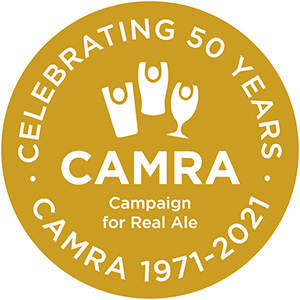Documentary research
A note on documentary research
The Context
Pub Heritage Group's written 'Guidelines' for selecting (regional) inventory entries state that The pub should retain a reasonable amount of genuinely historic internal fabric and/or sufficient of the layout for the historic plan-form to be appreciated and understood. Ideally it should be possible to authenticate these features by reference to building records, early photographs or other information typically held by archives or record offices. Although the caveat is added that such information is often not available, the strong message is that every effort must be made to authenticate entries wherever possible.
Where to go for this kind of information?
The best answer, from my experience, is to always start with the local authority and ask whether their planning and building control departments have or may know the whereabouts of any old plans, application details or other records which might throw light on the pub interior in question (i.e. what post-war changes it has undergone and, ideally, what it was like before the Second World War).The first approach is best made to the conservation team or conservation officer in the council's planning department, who will often be found to be interested and willing to help.
Plans for new buildings, or for structural alterations to existing ones, have required local authority approval ever since the 1850s and by the 1890s these could be highly detailed and elaborate. In York the council's building control department still holds some building plans going back to the 19th century, and still finds it relevant to do so, but many other councils will have transferred their older planning and building records (particularly those pre-dating 1974, when local government was radically re-organised) to local archives or county record offices - which become the next logical places to ask our questions.
All newbuild and structural alteration work to pubs also required licensing justices' approval from the 1870s onwards (until 2005) and old licensing records, which occasionally include actual plan drawings, can be another very useful information source. Old licensing records are usually held at archive offices although some Court offices still retain their own (certain districts of Greater Manchester, for instance).
Archive offices may also occasionally hold records of old local and regional brewery companies. Whilst these will not usually include any actual building plans, documents like directors' minutes will record details of the letting of pub building and refurbishment contracts.
The local library or reference library can also be a good source of information and is always worth checking. They may even have a catalogue reference to the pub in question and their local history collection might include old local newspapers (which were sometimes highly detailed in their accounts of new pub openings), old Ordnance Survey maps (where the 'footprints' of buildings can sometimes give broad clues to internal arrangements) and trade directories, going back to the 1830s (which, whilst little concerned with building details, can sometimes help with dating).
Access and overcoming obstacles!
Some authorities and archive offices may be prepared to supply copies of plans or may allow digital photography, others may not. Be prepared, when visiting, to only use pencil for making notes and to make freehand sketches of plans (rather than tracings). A few authorities and archive offices can be unhelpful when first approached. Some may even want to charge you for inspecting plans, especially Building Control plans, but a polite letter of introduction, clarifying CAMRA's bona fide and the non-commercial purpose of our research, may help unlock such obstacles. (See the appended letter as an example of one which worked and might be useful as a model).
If all else fails, a Freedom of Information Request may be made as a last resort, even though most information held by public authorities ought to be in the public domain anyway. (You might note that requests for Planning documents are dealt with under the 'Environmental Information Regulations', a sub-set of FOI).
If you have no success with your information searches, there is a variety of other, less obvious, lines of enquiry which may be worth pursuing. Please don't hesitate to get in touch with Pub Heritage Group who can provide more advice on sources and where you might go next.
Dave Gamston
 Pub Heritage
Pub Heritage 